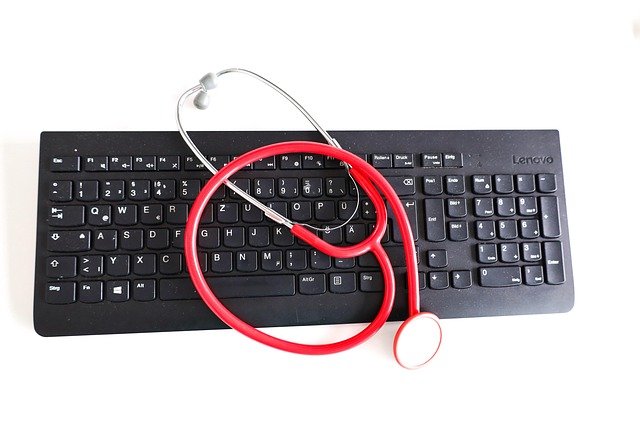Quit Drinking – Proven Techniques to Take Control
Embarking on the journey to quit drinking is a life-changing decision that can significantly enhance physical and mental well-being. Whether you're looking for traditional rehab programs or alternative approaches like Alcohol Coding Therapy, understanding the available treatments can help you make informed choices.

What Is Alcohol Coding Therapy?
Alcohol Coding Therapy is an alternative treatment method that aims to deter individuals from alcohol consumption by creating a psychological aversion to drinking. This therapy often involves hypnosis, suggestion techniques, or medication that causes negative reactions when alcohol is consumed. The goal is to instill a mental barrier against alcohol, reducing cravings and dependence.
How Effective Is Alcohol Coding Therapy?
The effectiveness of Alcohol Coding Therapy is a subject of debate. While some individuals report success in reducing alcohol cravings, scientific research on its long-term effectiveness remains limited. Unlike evidence-based treatments such as Cognitive Behavioral Therapy (CBT) and medical detoxification, Alcohol Coding Therapy lacks standardized protocols, making its results unpredictable. If you’re considering this approach, consulting with a healthcare professional is recommended to evaluate whether it’s suitable for your situation.
What Are Established Methods for Quitting Alcohol?
Several well-researched and proven methods can help individuals overcome alcohol dependence:
- Detoxification – This is the first step in alcohol recovery, where individuals undergo medical supervision to manage withdrawal symptoms safely.
- Cognitive Behavioral Therapy (CBT) – A psychological approach that helps individuals identify and change negative thought patterns associated with drinking.
- Motivational Enhancement Therapy (MET) – A therapy that enhances personal motivation to quit alcohol by helping individuals recognize their ability to change.
- Mutual Support Groups – Organizations such as Alcoholics Anonymous (AA) and other non-religious recovery programs provide peer support and community encouragement.
- Medication-Assisted Treatment (MAT) – Certain FDA-approved medications, such as naltrexone and disulfiram, can help reduce alcohol cravings or create unpleasant reactions to alcohol consumption.
Are There Non-Religious Alcohol Recovery Programs?
Yes, several non-religious programs cater to individuals who prefer a secular approach to sobriety:
- SMART Recovery – Uses evidence-based techniques, including cognitive and behavioral strategies, to support sobriety.
- LifeRing Secular Recovery – Focuses on self-empowerment and personal responsibility in overcoming addiction.
- Women for Sobriety – A program designed specifically for women, offering positive affirmations and personal growth strategies.
These alternatives provide valuable support for those who may not align with the spiritual aspects of traditional 12-step programs.
How Can You Find Alcohol Rehab Centers in Your Area?
If you’re looking for alcohol rehab centers, here are some ways to find a suitable facility:
- Consult a healthcare provider – Primary care physicians can refer you to specialized addiction treatment programs.
- Use online directories – Many health organizations offer searchable databases of accredited rehab facilities.
- Check with insurance providers – Your health insurance company may have a list of in-network rehab centers.
- Reach out to local support groups – Peer-led organizations can provide recommendations based on firsthand experiences.
How Do Different Alcohol Recovery Programs Compare?
When choosing an alcohol recovery program, understanding the differences in services and approaches can help you make the right choice.
| Provider Name | Services Offered | Key Features/Benefits |
|—————————–|———————————————|—————————————————|
| Alcoholics Anonymous (AA) | Peer support, 12-step program | Faith-based approach, group accountability |
| SMART Recovery | Behavioral therapy, self-management tools | Secular, evidence-based, flexible |
| LifeRing Secular Recovery | Peer-run groups, online meetings | Non-religious, personal empowerment |
| Women for Sobriety | Support groups, self-affirmation practices | Tailored for women, focuses on emotional growth |
Note: The information provided is based on publicly available data. Independent research is recommended to determine the best option for your needs.
What Are the Treatment Options for Alcohol-Induced Liver Damage?
Heavy alcohol consumption can lead to liver damage, but several treatment strategies can help manage and, in some cases, reverse its effects:
- Complete Abstinence – Stopping alcohol use entirely is the most effective way to prevent further liver damage.
- Nutritional Support – A healthy diet rich in essential nutrients can aid liver function.
- Medications – Certain drugs may help manage symptoms and reduce inflammation in the liver.
- Medical Monitoring – Regular check-ups with a healthcare provider are essential for tracking liver health.
The liver has the ability to regenerate if the damage is not severe, highlighting the importance of early intervention.
Conclusion
Overcoming alcohol dependence requires a comprehensive approach that aligns with your personal needs. While Alcohol Coding Therapy is an alternative option, evidence-based treatments such as therapy, support groups, and medical intervention remain the most reliable pathways to sobriety. Exploring available programs, consulting healthcare professionals, and making informed decisions will empower you on the journey to a healthier, alcohol-free life.
This article is for informational purposes only and should not be considered medical advice. Please consult a qualified healthcare professional for personalized guidance and treatment.
The shared information in this article is up-to-date as of the publishing date. For more up-to-date information, please conduct your own research.




